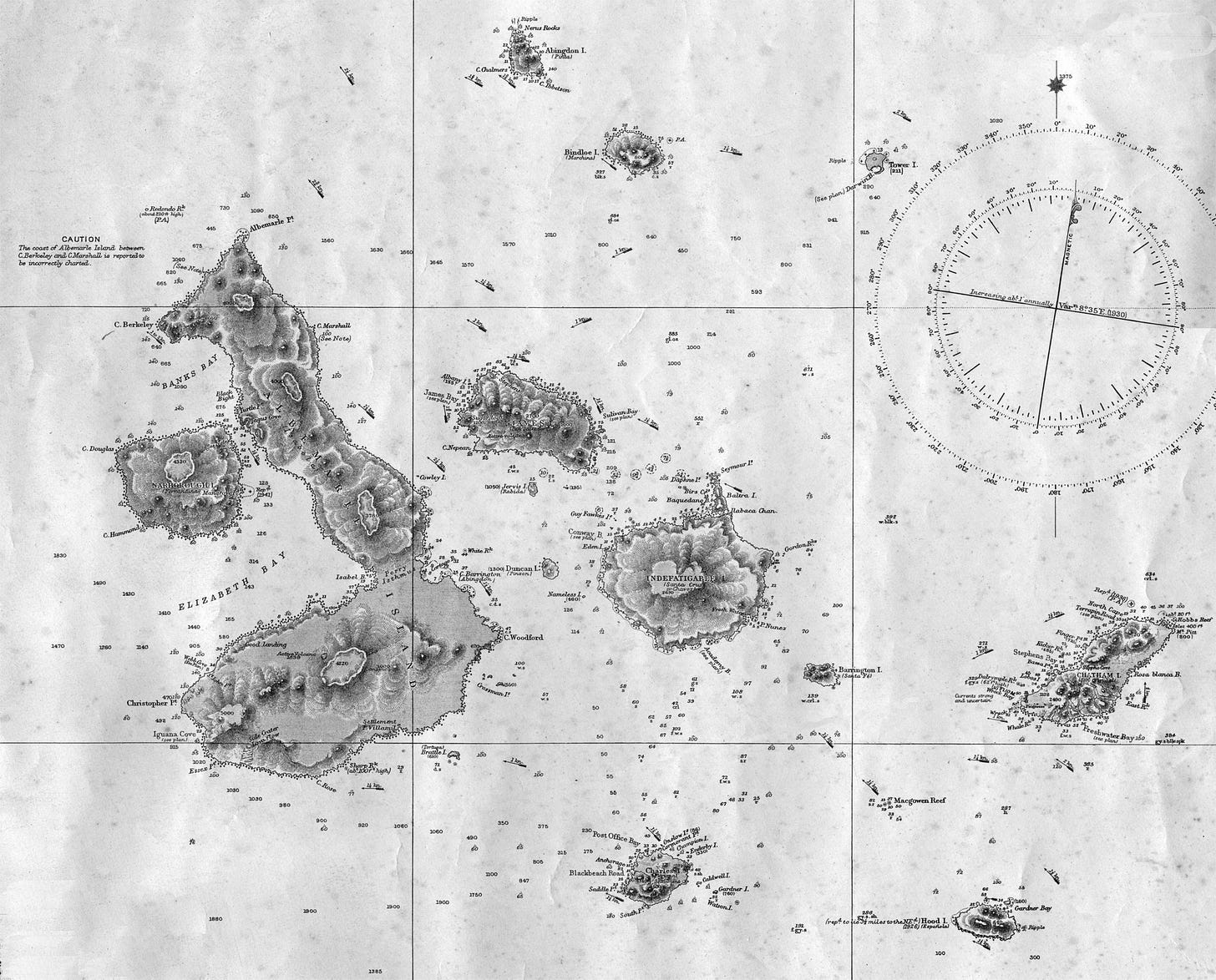
Charles Darwin first visited the Galapagos Islands in 1835. Because the islands were 560 miles away from the nearest major landmass (South America), he observed peculiar qualities in the wildlife there. The type of island environment he used for discovery is one we can use for ourselves to become more thoughtful and wise - without leaving home.
Darwin noticed that similar types of wildlife developed different physical adaptations based on the specific island environment they were in. He is now famous for observing birds in the finch family on multiple islands, but with striking physical differences between the birds on each island. On one island, he found finches with large, strong beaks that made it easy to crush the larger, harder nuts on that island. On another island, he found finches with smaller beaks that were better suited for catching the insects found there.
Darwin used this data to develop his groundbreaking theory of natural selection. Natural selection occurs when useful adaptions are selected to be passed on to the next generation because they enable a higher survival and reproduction rate. Members of the species without the useful adaptations die at a higher rate, and are less represented in future generations.
But how was he able to figure this out?
It turns out, islands taught Darwin something groundbreaking specifically because they were islands.
They were small and isolated with large hurdles to move elsewhere. The Galapagos islands provided data not readily observable on expansive continents where wildlife could freely relocate.
In the same way, we can learn more about ourselves by spending time away from the deluge of noise that modern technology (social media, work email on our phones) floods us with.
Michael Harris describes the idea well in his book, The End of Absence:
This reminds me that real thinking requires retreat. True contemplation is always a two-part act: We go out into the world for a time, see what they've got, and then find some isolated chamber where all that experience can be digested. You can never think about the crowd from its center. You have to judge from a place of absence. (Harris 133)
By unplugging, even if for just a few hours at a time, we can pause and reflect on what makes us happy. What we're excited about. What we're worried about. We can reflect on what we really want in life, without someone else deciding for us. Then write it down. Our brains have a nasty way of making us forget how we used to think about things.
We do these things, so that instead of standing like a straw-man, buffeted by the wind and outside influence that surrounds us, we stand strong with clear intent, knowing not just what we want out of life, but how we want to journey through it.

